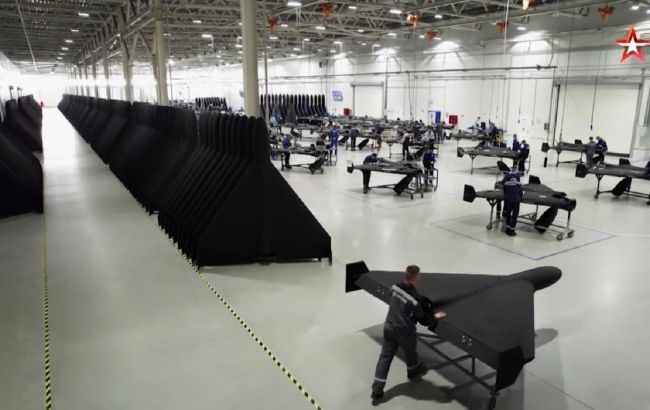Women allegedly recruited in South Africa to manufacture Shahed drones for Russia
 Photo: Russia recruits women in South Africa to assemble Shahed drones (Getty Images)
Photo: Russia recruits women in South Africa to assemble Shahed drones (Getty Images)
Russian companies are expanding their campaign to recruit young women from Africa to fill labor shortages, raising concerns that some could be used for military purposes against Ukraine, according to Bloomberg.
Activity has been recorded in South Africa, a BRICS member. One of the main recruiters is the Alabuga Special Economic Zone in Tatarstan, which produces military drones. The South African government has launched an investigation to determine the objectives of the Russian companies.
Organizations are using the BRICS brand to promote their programs. In May, the local branch of the BRICS Women's Business Alliance signed an agreement to provide 5,600 workers for Alabuga and Etalonbud Ural.
Jobs targeting women aged 18–22
Back in January, the BRICS student commission in South Africa posted advertisements for construction and service jobs in Tatarstan. These were heavily promoted by influencers on Instagram and TikTok.
"Russia is sitting with a demand for workforce. South Africa is sitting with a crisis of unemployment," said alliance head Lebogang Zulu, who signed the agreement in Russia.
Russia has lost hundreds of thousands of men on the front lines and is facing rising wages. In South Africa, unemployment affects a third of the working-age population, making the offer attractive to many.
Suspicions of work in military factories
According to research organizations, including the Institute for Science and International Security (ISIS), women are being misled into working on assembling Shahed-136 kamikaze drones. Women are considered more reliable for this type of work.
The South African authorities said they are investigating possible fraudulent recruitment schemes. "The South African government is actively investigating reports of foreign programs that recruit South Africans under false pretenses," the country's Foreign Ministry said.
Promises vs. reality
Students in Johannesburg were given T-shirts and pens with Alabuga branding and promised free flights and housing. However, the promotional materials made no mention of drone factory work.
Human rights organizations report that around 90% of women who arrived in Alabuga ended up in the drone assembly program. "They're being exposed to the line of fire because they’re a part of a war now," said ISIS researcher Spencer Faragasso.
Scaling up the program
Alabuga is constructing new housing for 41,000 workers, signaling plans to expand drone production. The BRICS Women's Alliance claims its goal is to help address Russia’s labor shortage, estimated at 4.8 million people.
Previously, Alabuga recruited staff from some of Africa's poorest countries, such as Burkina Faso and Ethiopia. In 2023, only 22 people joined the program, but by 2025, the company plans to recruit over 8,000.
South Africa and neighboring countries
Recruitment is also taking place in other regional countries. In Botswana, Alabuga representatives denied work in drone workshops, framing the project as support for women. In Lesotho, local politicians joined recruitment efforts, offering youth training and jobs in Russia.
Local media reported that some recruited students had already left for Russia on August 20.
For context, Russia has invested at least $3 billion in mass-producing strike drones, including Shaheds.
Shahed-type drones are used daily by Moscow to attack Ukrainian cities.

